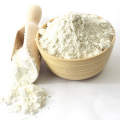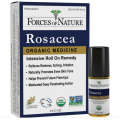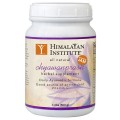 Loading... Please wait...
Loading... Please wait...- Home
- About Us
- Shipping, Returns & FAQ's
- Contact Us
-
For Your Information
- Canadian Customers Have a Choice if Shipping Via UPS
- Aura Cacia Homemade Aromatherapy Recipes
- Bella Nella Altered Art & Paper Crafts Blog
- Forms of Herbal Preparations
- Laundry Tips To Conserve Energy Blog from The Laundress
- The Story of Frontier Natural Products Co-Op
- Sovereign Silver Hydrosol and Aloe Protocol Stops Downward Spiral of Gut Dysbiosis
- Disclaimers
- Recommended Links
- RSS/Recent News
- The Story of Typhoon Housewares
- Reviews/Testimonials
- Raw Ingredients for Mfg
- Home
- Supplements
- Immune Boosters
- Chyavanprash Nutritive Jam Organic 9.4 oz(266g)/17.6 oz(500g) Banyan Botanicals
- Home
- Supplements
- Digestive
- Chyavanprash Nutritive Jam Organic 9.4 oz(266g)/17.6 oz(500g) Banyan Botanicals
Chyavanprash Nutritive Jam Organic 9.4 oz(266g)/17.6 oz(500g) Banyan Botanicals
Product Description

 Rejuvenates all tissues in the body*
Rejuvenates all tissues in the body*- Increases overall strength and energy*
- Improves muscle mass*
- Builds ojas for healthy immune response and youthfulness*
- Strengthens the heart and respiratory systems*
- Tonifies the reproductive system*
- Kindles agni (digestive fire)*
- Gently encourages elimination*
- Supports optimal urinary health*
Chyavanprash is a traditional Ayurvedic herbal jam made in a base of amalaki fruit, a rich source of antioxidants. This excellent rejuvenative nourishes and strengthens the body, providing energy and vitality.
Chyavanprash is an excellent method for daily herbal consumption due to its unique consitutents of cane sugar, ghee and honey. Proven effective over a thousand years of use, these nourishing tastes play the important role of "carriers" that allow the herbs to penetrate deep into the tissues. In a small daily dose (1 or 2 teaspoons), it makes for a tasty and very healthful treat.
This tridoshic formula stimulates metabolism and enkindles the digestive fire without aggravating pitta. It balances vata and kapha while strengthening the body against the effects of a stressful lifestyle. The energizing herbs bolster the immune system and help maintain health and well-being throughout the year.
Suggested Use: 1 teaspoon, once or twice daily, or as directed by your health practitioner.
Chyawanprash can be taken alone, it can be stirred into milk or water, or it can be spread on toast, bread, or crackers – like any other jam (3). Taking chyawanprash in warm milk (or almond milk, if dairy is not appropriate) helps to carry its tonifying and rejuvenating qualities deep into the tissues (2). The usual dose of chyawanprash is 1-2 teaspoons, once or twice daily, or as directed by your healthcare practitioner (4, 2). Children can take ½ tsp daily.
As a rasayana (rejuvenative), chyawanprash is typically taken in the morning, or sometimes in both the morning and the evening (4, 2). Chyawanprash can be taken on a long-term basis as part of a program designed to support overall strength and immunity, even supporting the natural systems of the body after a bout of stress or illness. For others, it is more appropriately used seasonally, as a tonic in the winter months (2).
Ingredients: Cane sugar**, Honey**, Ghee**, Amalaki fruit**, Cardamom seed **, Ashwagandha root **, Pippali fruit **, Vasaka leaf **, Haritaki fruit **, Punarnava root **, Kantakari herb **, Gokshura fruit **, Vidari Kanda root **, Guduchi stem **, Sati herb **, Shatavari root **, Musta root **, Bilva fruit **.
**Certified organically grown
Chyawanprash is a delicious nutritive jam that has been used in Ayurveda for thousands of years, offering a wide range of health benefits. In Sanskrit, the word, ‘prash’ refers to a specially prepared food. It is said that two ancient sages of Ayurveda concocted this particular formula to restore youth to the elderly sage, Chyawan – thus the name, ‘chyawanprash’ (1, 2). The transliteration from Sanskrit to English has resulted in a variety of spelling variations, including: chyavanprash, chyavanaprasam, and chyavanaprjasha (3, 1). Banyan Botanicals offers this preparation as chyavanprash.
Ayurvedic jams are often used as anupans (carriers) for other herbs, but they can also be used on their own and frequently are – especially as rejuvenatives and aphrodisiacs (1). The Ayurvedic jam known as chyawanprash is made with a base of amalaki fruits (Emblica officinalis) and typically contains a number of other herbs, ghee, sesame oil, sugar, and/or honey. The honey, ghee, and sesame oil serve as yogavahis (catalytic agents) to carry the herbs deep into the tissues, while the sugar is considered a samvahaka dravya (preservative substance) which helps to safeguard the clinical efficacy of the main ingredient, in this case amalaki (4, 5).
Amalaki, also known as amla, is renowned for its rich antioxidant content and for its very high concentration of vitamin C – one of the highest known in the plant kingdom (2). More importantly, the vitamin C contained in the amalaki fruit is stabilized by the presence of tannins, which help to preserve the vitamin content, even through processing (2). This is particularly relevant in a preparation such as chyawanprash, which requires extensive cooking.
While the first known source of the ‘recipe’ for chyawanprash is found in the Charaka Samhita, an ancient Ayurvedic text, the jam is also described in several other respected Ayurvedic texts, often with some alteration to the ‘original’ formula (2). In fact, there is an extensive history of variation in chyawanprash preparations and appropriate amendments are therefore considered acceptable (2). This being the case, modern concerns for sustainability and availability of herbs have resulted in a wealth of chyawanprash varieties, all essentially sharing the same core benefits (2).
References
1. Svoboda, Robert. Ayurveda: Life, Health and Longevity. Penguin Books, 1992. 256.
2. Pole, Sebastian. Ayurvedic Medicine: The Principles of Traditional Practice. Churchill Livingston Elsevier, 2006. 296-297.
3. “Chyawanprash.” Wikipedia. Online. Retrieved 24 Apr. 2012.
4. Lad, Vasant. Textbook of Ayurveda, Volume Three: General Principles of Management and Treatment. The Ayurvedic Press, 2012. 342, 418.
5. Apte, Deepa. “Chyawanprash: The Ultimate Natural Health Supplement.” Natural Health Web. Online. Retrieved 24 Apr. 2012.
 About Banyan Botanicals
About Banyan Botanicals
Banyan Botanicals was founded in 1996, based on the dream of creating a company that would provide the best in Ayurvedic herbs and products. Banyan's mission is to provide you with the highest quality Ayurvedic herbs and products possible. The company believes a high quality product is one that is pure, effective and produced in an environmentally-friendly, ethical manner. To fulfill this mission Banyan Botanicals is committed to offering USDA Certified Organic herbs whenever possible, practicing Sustainable Sourcing methods and utilizing only Fairly Traded herbal ingredients.
Find Similar Products by Tag
Find Similar Products by Category
You Recently Viewed...
Currency Converter
Choose a currency below to display product prices in the selected currency.




























